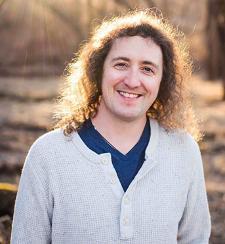Dr Chris MacDonald

What is the subject of your research?
My lab uses primarily uses yeast to discover and define conserved surface protein trafficking mechanisms. We are interested in many of the regulatory aspects of protein trafficking and how the surface proteome interacts with the outside world.
What made you decide to apply for this fellowship?
During my postdoctoral research at the University of Iowa I felt ready to become a principle investigator and start my own lab. This fellowship scheme was particularly attractive as it provides generous levels of support and provides fellows with a realistic opportunity to become independent.
What was the application process like?
Arduous, but fun. I met with various potential host institutes and spent a long time developing a research programme I thought would best allow me to become independent. York as a sponsor was extremely supportive in all aspects of the application: giving me feedback on my proposal, hosting me for a mock interview, helping me meet with other labs I might synergise with, and much more.
What have you most enjoyed about your fellowship?
From a personal perspective, I have enjoyed getting to spend time with awesome people. Colleagues in different departments are wonderful, but it is particularly cool to work with people in the lab. We have been very fortunate in having a series of excellent scientists join us over the initial years of the fellowship.
From a personal perspective I have enjoyed having the time to tackle difficult scientific questions beyond our previous capabilities. We have an excellent relationship with the Bioscience Technology Facility at York; this collaboration has allowed method development to answer questions I didn’t think possible. The fellowship has also allowed us the freedom to follow unexpected hypotheses that we developed during the process; this is the most fun aspect for me.
What advice would you give to someone considering applying for a fellowship?
Spend a long time developing the research proposal. I find allowing time for initially good ideas to mature refines an application. This time also allows the ideas to be distilled to the very core principles.
Related to this, there is a tendency for fellowship applicants to provide too much detail (e.g. experimental details, field-specific nuances) when the selection committees are typically not experts in the field. It is better to sell the ideas and merits of your research to a very broad audience.
Finally, although the best fellowship applications I review all share similarities (e.g. new and exciting research), they also exhibit a certain amount of uniqueness. There isn’t a formula to a perfect fellowship application, combining all aspects of your customised skills, training and knowledge will maximise the impact of an application. These can be threaded through every section of the application form.
